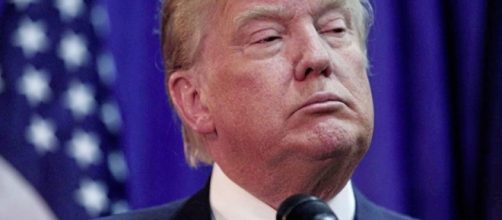The past year has seen a major swing of political power, with a vote for Brexit in the UK and Donald Trump elected President of the United States. The swing from left to right has been met with amazement by the left wing and liberal commentators who have dominated the media to such an extent that the fact the electorate has chosen a different political ideology has come as a major surprise to them. They quite literally didn't see it coming, because that opposing voice, while obviously there all along, just hasn't been heard.
But will the political swing mean a shift in attitudes to animals in the circus and entertainment industry?
The animal rights movement that has always led the campaign against circuses (and also opposes hunting and animal agriculture among other things) has always been aligned with a left wing agenda that is currently losing power and confidence.
Circus elephants
Last year was one of the worst for circuses, with Ringling retiring its iconic elephant parade in the face of local legislation threatening to keep the show out of major markets, such as Los Angeles. Ringling's decision in America echoes the situation in the UK in the 1980s and 90s, when many local authorities banned circus animals from municipal show grounds and forced circuses to use privately owned, out of town sites, such as farmer's fields, where it was harder to draw a crowd.
Political circus
The majority of UK circuses, led by the sector's biggest names, such as Gerry Cottle, gave up the use of animals in favour of all human line-ups in order to return to city centre locations where they could do decent business. It was always a political move, rather than one based on public taste, although opinions have been swayed by a left wing press sympathetic to the animal rights agenda. But could the tide of political opinion against circuses be changing along with the wider political climate?
Circus licencing scheme
A ban on wild animals in the big top was proposed by the Conservative-Lib Dem coalition in 2012. But without the Lib-Dem influence, the current Conservative administration has seemed content to continue with a licensing regime that monitors the welfare of circus animals.
More recently, the Welsh government has also stepped back from its announced intention to ban circus animals and has proposed a licencing scheme similar to that in England.
Is it mere coincidence, or a reflection of the political shift away from the left wing liberal agenda that has dominated public discourse for at least the last twenty years, but which the public has now rejected in two major elections? The right, after all, has always been aligned with commercial agriculture and countryside pursuits such as hunting, which makes it no friend of the left wing animal rights movement.

